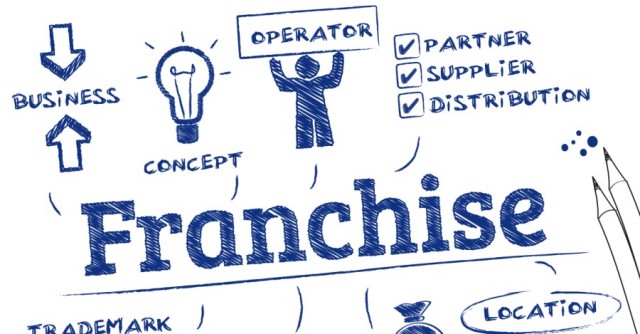So, you’re thinking of entering the exciting world of franchising. Good for you! It really is as exciting as it seems, and the financial rewards can be great for someone who possesses the right temperament and business expertise.
RELATED: TOP 10 FRANCHISES OF 2015
Given that it’s always best to look before you leap, though, we’re going to provide you with a general overview of how to buy a franchise. Hopefully, this will ensure there are no surprises along the way.
Step 1: Hire a Franchise Attorney
When you’re in the process of shopping around for a franchise, you may be told on multiple occasions that you do not need a lawyer. Nothing could be further from the truth. You’re becoming a businessperson, and that means you need a business lawyer.
As you’ve probably seen emphasized elsewhere, the Franchise Disclosure Document, more commonly referred to as the FDD, is the single most important document that you’ll come into contact with as a franchisee. It’s legally mandated that any franchisor provide this document to a prospective franchisee, and the FDD is often quite long and laden with legalese.
While you may think you can sort through all of the legalese in the the FDD and other documents you have to review, sign and notarize, do you really want to rely solely upon your own judgment? Hiring a franchise attorney should be the very first thing you do.
Step 2: Narrow Your Focus
Choosing the right franchise opportunity is no easy task. There are so many franchise opportunities available that it can feel overwhelming. That’s why it’s so important for your own mental well-being at this point to narrow your focus.
Start first with an industry or two that you’re interested in. Make sure it’s something that’s going to hold your interest for the length of the contract. Because once you’ve signed the documents and the checks have cleared, you’re involved with your franchise for the long haul.
Also at this point in the process, you’ll need to be looking at startup costs. Restaurant franchises, for example, require a lot more capital than others do. If you don’t have much capital to start with, don’t worry. There are plenty of cheap franchise opportunities for you to explore.
Once you’ve selected an industry, you’re one step closer to your dream. Now you want to narrow it down even further to two or three specific franchises to research.
Step 3: Compare Similar Franchises
The last thing you want to experience when buying a franchise is buyer’s remorse, so this step is crucial. With the few franchises you’re looking into, do a thorough research of all of them.
How do their turnover rates compare? How do the initial setup costs compare? How about ongoing royalties? Again, a qualified franchise lawyer can point you in the right direction for other considerations.
Study the territories and customer bases being offered. Do the franchises offer area exclusivity? If not, how many other identical outlets are already there?
By now, you should have one in mind that sounds like it could be a fit. If you don’t feel like you’re quite there yet, keep researching until you feel like you know all there is to know, and make the smart choice.
RELATED: TOP LOW COST FRANCHISES 2015
Step 4: Evaluate the Franchise
When you buy a franchise, you’re also purchasing your franchisor’s company, warts and all. You can see if there are consumer complaints against a particular franchisor by doing a search on the Better Business Bureau or by making a request in writing to the FTC.
Next, what do you know about the executives who run the company? Is there any pending litigation against the franchisor that you should be aware of? How secure will your territory be?
Don’t forget that you’re being marketed to when you’re examining different franchise opportunities. Therefore, franchisors aren’t always entirely upfront about the true costs of owning one of their franchises. Make sure that you do your research into this matter by thoroughly reviewing the Franchise Disclosure Document and having your lawyer review it with you.
And always – we mean always – make sure there’s a viable exit strategy. The franchise lawyer can also help with this. By becoming a franchisee, you’re becoming a self-actualized businessperson, and businesspeople always have exit strategies. You never know what may happen down the line, and you may find yourself in a position where you need to get out from under your franchise sooner than expected. Before signing on the dotted line, make sure there are viable exit strategies available to you; otherwise, you could find yourself in a world of hurt.
Step 5: Talk to the Franchisor and Franchisees
If everything to this point checks out with the franchise, sit down with the franchisor and a few franchisees for even more information gathering.
Questions You Should Ask The Franchisor
- How would you describe your corporate culture and values? (Do they align with yours?)
- Will I receive support for securing a lease and for identifying an ideal location for my franchise?
- Do you offer any assistance with financing, either directly or through an approved/preferred third party?
- How long does it take the typical franchisee to make back their initial investment?
- What are the company’s long-term goals, and how does the company plan to achieve those goals?
- What assistance will the company provide when I’m first starting out?
- After coming to an agreement, how long will it take for my franchise to open its doors?
- How are disputes between franchisees, as well as between franchisees and yourself, resolved?
- What options are available to me in terms of an exit strategy?
Question You Should Ask Other Franchisees
- What kind of support does the franchisor provide? Did you find it useful?
- Are there any costs that you’ve come across that you weren’t aware of when you started?
- How have things operated in your territory? Have you faced pressure from other franchisees in the immediate area?
- What’s your background, and do you feel that your background has played a role in your franchise’s success?
- What unexpected difficulties have you encountered, and how did you go about solving them?
- Do you feel that the franchisor offers adequate support for marketing and advertising?
- Do you plan to expand your business by opening additional franchises?
- What kind of restrictions have been placed upon you, and do you feel those restrictions help or hinder your ability to run your business?
- Has the franchise lived up to the expectations you had when you started? If not, why do you think that is?
- Are you happy? If not, why?
Next, you’ll want to see the business in action by visiting several operating sites. Try to get a sense of what goes on, customer traffic, transaction size and other business operations.
Step 6: Make the Purchase
If you feel entirely comfortable with everything that you’ve learned over the preceding steps, and you feel like you know exactly what you’re getting into, then it’s time to pull the trigger. Don’t forget this: If you’re working with a small franchisor, you may be able to negotiate the franchise fee. (And, even with a bigger one, it never hurts to try.)
Lastly, working with the franchise attorney you hired, sign the contracts, send the checks and take your first step into business ownership.
RELATED: TOP NEW FRANCHISES TO INVEST IN

